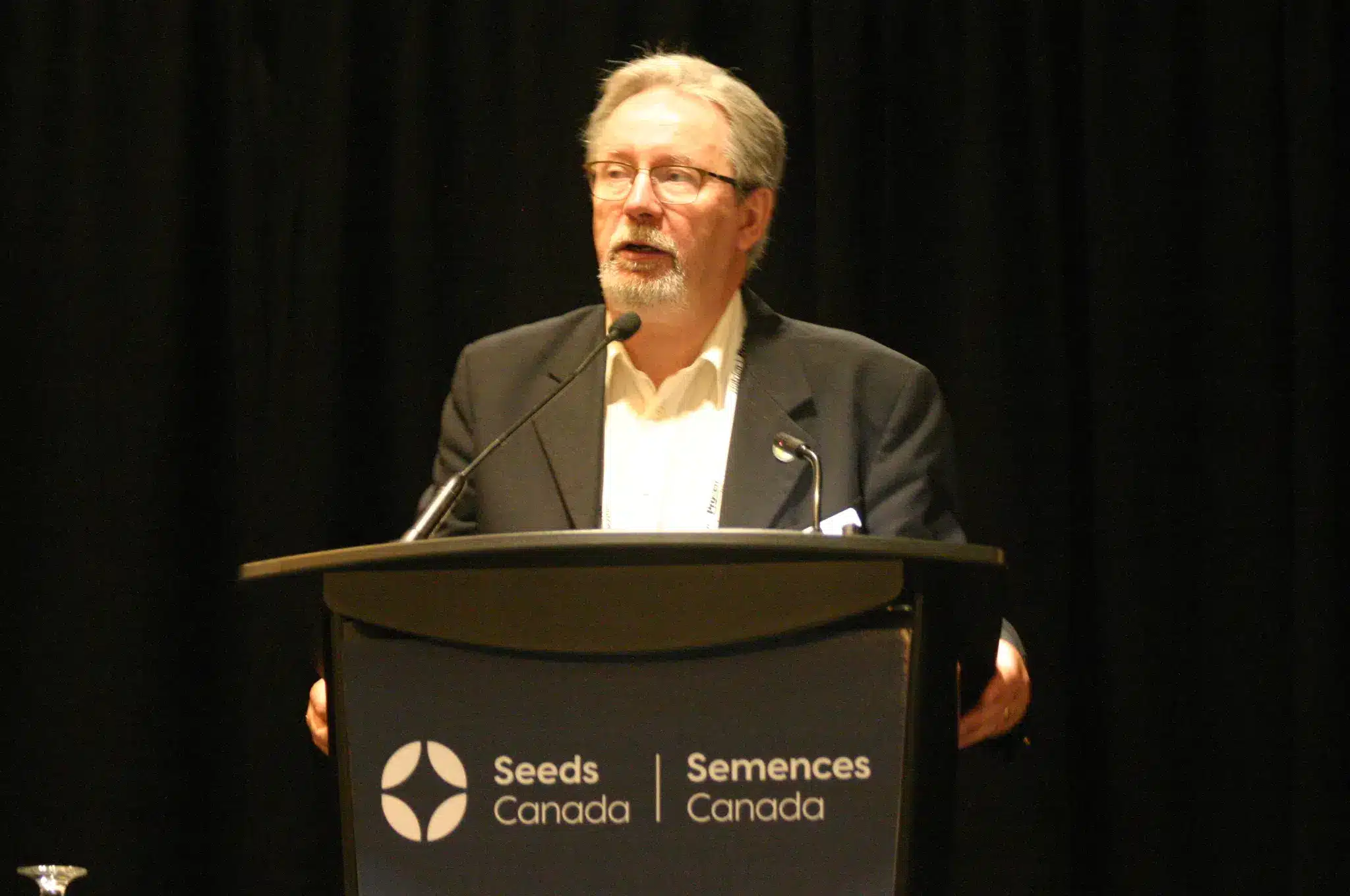Seeds Canada has proposed the formation of an independent standards setting body which would oversee the country’s seed regulatory framework.
At its annual meeting this morning, Canada’s newest national seed organization proposed the formation of an independent standards setting body (ISSB) as part of its new Functional Framework for a Modern Seed System.
The job of the ISSB would be to institute a robust governance structure to maintain balanced representation, informed consensus-based decision making and transparency in the Canadian seed system, said Seeds Canada policy director Lorne Hadley.
The proposed ISSB would be to “look at the regulations from all sides and all viewpoints” before being sent to government for adoption, Hadley said.
Lauren Comin, regulatory affairs manager for Seeds Canada, said the ISSB vision imagines a robust governance structure with balanced representation across the value chain.
“The mandate is going to be very outcome based, to keep all of our [stakeholders] happy and involved in the regulatory framework,” she said.
Diverse value-chain representation would ensure variety acceptability and seed quality, which are the foundation of seed standards. A potential governance structure could include a board with diverse experience in the seed and agriculture industry, as well as committees which include board representation and other industry and government expertise and advisors, according to a draft document presented at the meeting.
Some areas where the ISSB could develop policy include variety registration, seed certification, seed cleaning and conditioning, seed sampling, testing and grading, and also labelling, Comin said.
Stakeholder members of the ISSB could include seed analysts, variety developers, seed growers, farmers, processors, seed suppliers and more.
According to Comin, the ISSB would be supported by and ultimately report to the Canadian Food Inspection Agency (CFIA).
Of course, there would be a number of challenges to overcome in forming an ISSB, namely:
- ISSB needs a sustainable source of funding and commitment by government
- Expert staff from industry and the CFIA will need to support the ISSB to ensure availability of information and ensure smooth operation of processes
- Interim board will need to complete analyses to ensure an effective ISSB
- The ISSB could be used in the SRM process, but would need to be set up in advance of 2025
These types of bodies exist in Canada already, Hadley said, like in the organic industry. The Canadian Grain Commission uses standards committees similar in structure to the proposed ISSB, he added.












